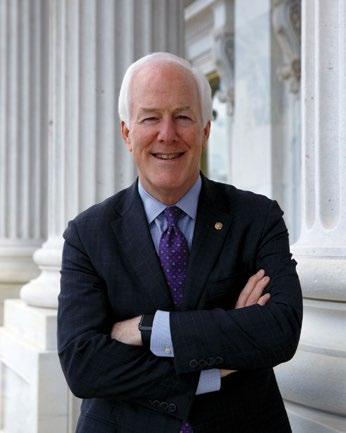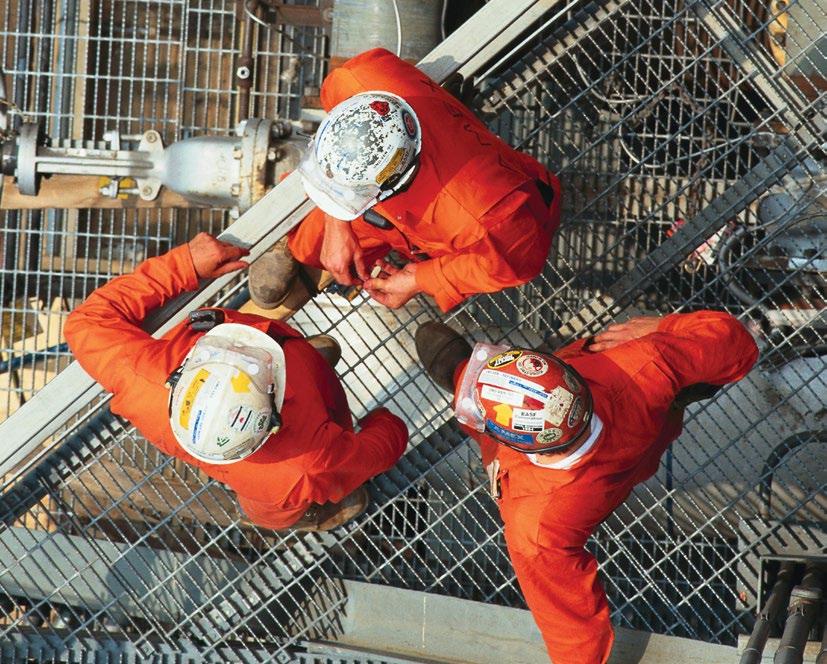TEXAS/
Congressional Spotlight SEN. JOHN CORNYN (R-TX) By Kristin Hincke, PESA
S
en. John Cornyn has served Texas in the U.S. Senate since 2002. He currently serves as the Majority Whip, a position that gives Texas a powerful voice at Congress’ leadership table. The ending of the crude oil export ban and the granting of permits to export U.S. LNG have changed the global energy dynamic. What have been the effects of these policy changes on U.S. foreign policy and the stability of the world energy supply? More than four years ago, Congress ended America’s 40-year-old crude oil export ban. The time was right: we had a surplus of American oil and gas available to share with global markets, and we had a need to propel our economy, strengthen our national security, and help our friends and allies. Since the ban was lifted, U.S. production has been steadily climbing. From the first full month of the policy change through July 2019, U.S. crude oil production increased by 2.6 million barrels per day. Last December, for the first time on record, the U.S. exported more crude oil and fuel than we imported. And for the first time this fall, the value of petroleum exports exceeded that of imports. But doing away with this outdated, policy didn’t just propel the economy, it also provided the fuel to strengthen our alliances around the world. Reducing other countries’ reliance on Russia and other nations for their energy needs isn’t just a win for America – it’s a win for global security. And in countries like India to which the U.S. doubled LNG exports last year, providing access to American energy is helping lift folks out of poverty.
12
Energy Connection/February 2020
At a recent visit to PESA Member Company Sunbelt Steel in Houston, you discussed the Green New Deal and its impact on energy production, especially in Texas. Can you share your thoughts on this proposal? When someone proposes an idea like the Green New Deal that will reorder the world, it’s important to ask the right questions, like is it feasible? How much would it cost? What would it do to the jobs of the men and women who work at places like Sunbelt Steel in Houston, Texas? What we learned at Sunbelt Steel is it would put them out of business, and for what? There are a lot better ways for us












